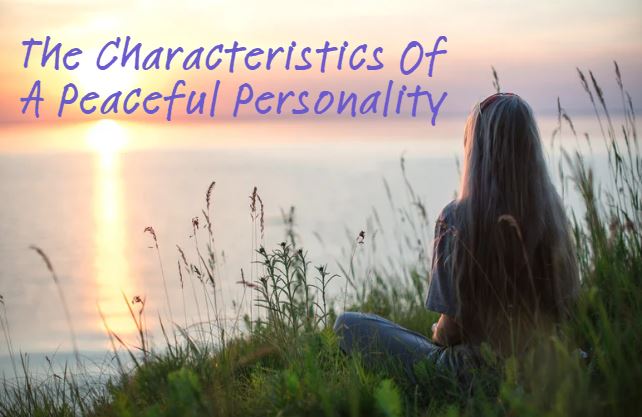The pursuit of peace is a timeless endeavor that begins within the individual. A peaceful personality is not merely the absence of aggression or conflict but includes a range of traits and behaviors that foster harmony and understanding.
Drawing from psychological research and philosophical insights, let’s explore the key characteristics of a peaceful personality. Discover what sets the stage for a more peaceful way of life and how that can lead to promoting a culture of peace.
Empathy and Compassion
The cornerstone of a peaceful personality is empathy, which is the ability to understand and share the feelings of others. Research by psychologists like Daniel Goleman, demonstrate how empathy is essential for developing positive relationships and resolving conflicts peacefully.
Empathetic individuals are attuned to the emotions of others. This trait enables them to respond to whatever comes their way with an open heart, compassion, and kindness.
Regulating Emotions
People with peaceful personalities have a strong ability to regulate their emotions. This skill helps them manage their own emotions effectively and avoid reacting without thinking. Psychologist John Gottman’s work on emotional intelligence points to the role of balancing emotions to maintain harmonious relationships.
When you remain calm and composed in challenging situations, you can defuse tensions and promote mutual understanding with greater ease.This allows you to maintain your own sense of peace as well as harmony within a family group, or community.
Open-Mindedness and Flexibility
Being peaceful is often described as being open-minded and having a willingness to consider diverse perspectives. Philosopher John Stuart Mill’s advocacy for freedom of thought and expression highlights the value of open-mindedness for creating tolerance and dialogue.
By embracing flexibility, peaceful individuals can adapt to change and negotiate differences more effectively. When you are willing to listen to diverse perspectives, you have the best chance for finding options that work for all involved.
Conflict Resolution
Another characteristic of the peaceful personality is the ability to settle differences with effective conflict resolution. Psychologist Marshall Rosenberg’s Nonviolent Communication model addresses the importance of empathetic listening, assertiveness, and collaborative problem-solving. These are the best tools for resolving conflicts peacefully.
Peaceful individuals tend to seek win-win solutions and prioritize reconciliation over winning at the expense of others. They appreciate a peaceful outcome based on coming together for the good of the whole.
Respect for Diversity
Peaceful personalities exhibit respect for diversity in all its forms — cultural, religious, ideological, and personal. Sociologist Diana Eck’s concept of pluralism highlights the importance of recognizing and honoring diverse beliefs and perspectives.
When people value diversity, they make space for a more inclusive and harmonious society. The peaceful person naturally has an appreciation for variety.
Mindfulness and Inner Peace
Cultivating mindfulness and inner peace is essential for being a peaceful person. Jon Kabat-Zinn’s research in contemplative science stresses the benefits of mindfulness practice to reduce stress and promote emotional well-being.
The peaceful individual prioritizes their own self-care, as well as inner harmony. As a result, this peaceful state of being radiates outward in their interactions with others.
Social Justice
Keeping and eye on fairness and social justice is another hallmark of a peaceful personality. Civil rights leaders like Mahatma Gandhi and Martin Luther King Jr. exemplify the power of nonviolent activism to advance equality and justice.
Peaceful individuals tend to stand up against injustice and work towards a more equitable world. They often inspire others to get behind these efforts as well.
Communication Skills
Nothing is more foundational to keeping the peace than good communication skills. Psychologist Deborah Tannen’s research on communication styles reveals how clarity, active listening, and empathy promote healthy relationships.
The peaceful personality type is usually an excellent communicator, doing so assertively and at the same time respectfully. The goal is to create an open dialog for mutual understanding and cooperation.
In review, the peaceful personality embodies all of these healthy abilities including:
- Having empathy
- Regulating emotions
- Being open-minded
- Using conflict resolution skills
- Respecting diversity
- Practicing mindfulness
- Focusing on social justice
- Effectively communicating
These traits are interconnected and support each other to produce a solid foundation for peaceful coexistence and positive social change. By cultivating these attributes, individuals create a more peaceful world internally and externally, for themselves and future generations.

